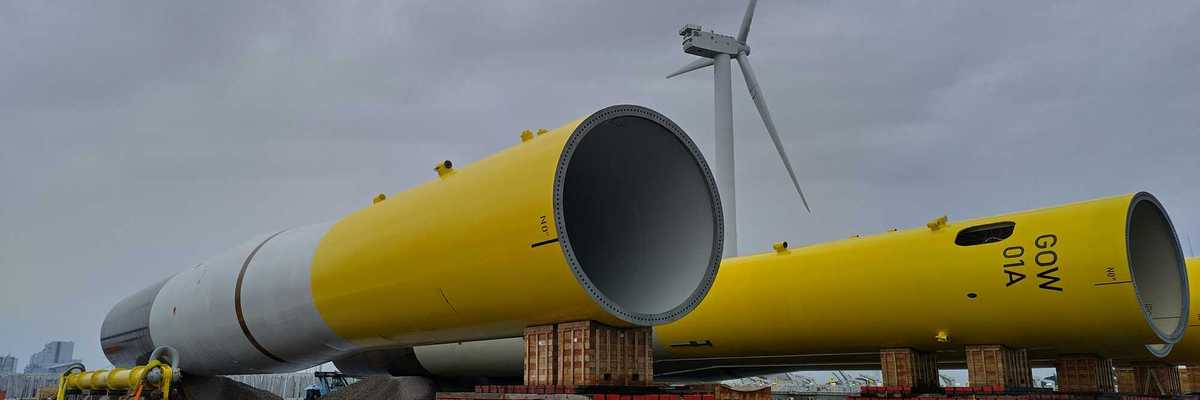mexico city
Mexico’s new president faces major water crisis challenge
Claudia Sheinbaum, Mexico's incoming president, faces the daunting task of addressing the country's severe water shortages, exacerbated by climate change and decades of infrastructure neglect.
In short:
- Mexico City suffers from a historic water crisis with intermittent contaminated water supply and significant leakage in the system.
- As mayor, Sheinbaum initiated rainwater capture, aquifer restoration, and pipe upgrades, but lacked resources for significant impact.
- With new presidential power and aligned local government, Sheinbaum could implement more comprehensive water management solutions.
Key quote:
“She has a very good record, and she started a lot of paradigm-shifting programs that opened new possibilities for approaching the water crisis. But these are still very small things compared to the scale of the problem.”
— Enrique Lomnitz, an engineer whose company, Isla Urbana, has built rainfall harvesting systems across Mexico City
Why this matters:
Mexico City’s water crisis affects millions. Sheinbaum, the first woman elected to Mexico's presidency, has pledged to make water security a top priority. Her plans include investing in modernizing the country's water infrastructure, promoting conservation efforts and addressing the root causes of water scarcity. However, she faces significant obstacles, including limited financial resources and the need for extensive coordination between federal, state and local governments.
Facing imminent water crises, Mexico City and Bogotá seek solutions
Mexico City and Bogotá are on the brink of severe water shortages, reminiscent of Cape Town's 2018 crisis, due to El Niño-induced drought.
In short:
- Mexico City and Bogotá are experiencing extreme water shortages, with reservoirs rapidly depleting.
- Both cities have implemented water rationing measures, urging residents to reduce consumption.
- Cape Town's successful response to a similar crisis serves as a potential model but poses challenges due to different local conditions.
Key quote:
“The bigger question, and what's relevant for other cities, is now that we’ve experienced this, what can we do going forward to make sure that this doesn’t happen again?”
— Johanna Brühl, water expert at the nonprofit Environment for Development
Why this matters:
Water scarcity can lead to conflicts, displacement, and exacerbate inequalities, particularly affecting the most vulnerable communities. It's a stark reminder that water, a seemingly abundant resource, is finite and must be managed with care. Effective solutions can safeguard against future droughts exacerbated by climate change. For example, capturing and reusing urban storm water could be a boon for water-stressed cities—if we can find a way to clean it up.
Mexico City's water crisis deepens amid urban growth and climate change
A convergence of climate change, urban sprawl, and deteriorating infrastructure has intensified Mexico City's water crisis, pushing it toward a potential "Day Zero" this summer.
James Wagner, Emiliano Rodríguez Mega, and Somini Sengupta report for The New York Times.
In short:
- Groundwater levels are rapidly depleting, and a major reservoir has been taken offline due to low levels.
- The Cutzamala water system, supplying 27% of the city's water, is at a historically low 30% capacity.
- Some neighborhoods face unprecedented water rationing, with more affluent areas now affected.
Key quote:
"We’re suffering because the city is growing immeasurably and it cannot be stopped. There aren’t enough resources."
— Gabriel Martínez, Mexico City resident
Why this matters:
Water shortages in Mexico City, a metropolis of 23 million, threaten public health, economic stability, and social order. As the city's population expands, so does the demand for water, leading to over-extraction of groundwater and subsequent subsidence of the city’s foundation. For residents, this crisis is more than just an inconvenience; it’s a daily struggle. In many neighborhoods, water supply is intermittent at best, forcing families to rely on water trucks or storage tanks. The health implications are dire, as inconsistent water supply can lead to poor sanitation and the spread of diseases.
Mexico City's water crisis intensifies amid heatwave and poor management
Mexico City, home to nearly 22 million people, faces an acute water shortage, with many residents going days to weeks without water. The situation is described as unprecedented by the city's water system director, Rafael Carmona.
In short:
- The Cutzamala System may fail by June 26, potentially leaving the city without water until September.
- High temperatures and diminished rainfall over the past years have exacerbated water storage issues, with local dams at critically low levels.
- Mismanagement, including widespread leaks and affluent areas retaining private water bodies, contributes significantly to the shortage.
Key quote:
"We understand that it is a global water crisis, but this is something that we are experiencing here, and we are living it up close. It is very, very worrying because hundreds of families are being affected."
— Michelle Nunez, Valle de Bravo municipal president
Why this matters:
The water crisis in Mexico City could force citizens to alter daily hygiene practices by limiting access to clean water. This local issue reflects a global water crisis, highlighting the urgent need for sustainable water management and climate action.
What it takes to save the Axolotl
A bicycle built for transporting cargo takes off
Coastal cities are sinking faster than sea-level rise
Some of the world’s major cities are sinking even faster than the sea levels around them are rising.









